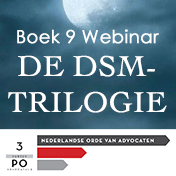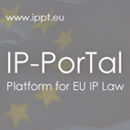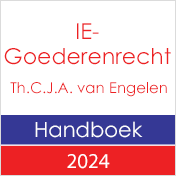
Uit de executive summary van het onderzoek: “In 2015, the European Union Intellectual Property Office (EUIPO), through the European Observatory on Infringements of Intellectual Property Rights, commissioned a research study on business models used to infringe intellectual property rights (IPRs). The initiative is envisioned as an independent data-driven study that will assess and analyse specific techniques used to facilitate online IPR infringements on a commercial scale. The aim of this independent research is to provide an overview of different infringing business models, assessing how they function, how they are financed, how they generate profits for their operators, what kinds of content they disseminate and how large their user bases are.
The study will provide enhanced understanding to policymakers, civil society and private businesses. At the same time, it will help to identify and better understand the range of responses necessary to tackle the challenge of large scale online IPR infringements. […]
It can be observed that a number of the IPR-infringing business models are based on generally applicable online business models, such as Business-To-Business (B2B) or Business-To-Consumer (B2C) websites and marketplaces. The revenue sources of the IPR-infringing business models are to a large extent the same as for non-infringing business models and consist of direct revenue sources such as sales revenue, subscription fees and donations, or indirect revenue sources such as pay-per click or advertisement fees. Payment options often include traditional bank transfer and credit card payment, but increasingly also include payments in virtual currencies (mainly Bitcoins).
However, the IPR-infringing business models differ from the non-infringing business models in the way that they are often deceptive to the customers and it can be observed that certain specific online IPR-infringing business models have been developed to benefit from IPR-infringing activities. Examples of that are misuse of the domain name system through cybersquatting, domain name parking and marketing of goods on websites making unauthorised use of trademarks unrelated to the marketed goods or services.
Deceptive business models are also found on websites marketing goods to consumers constructed in ways that give the consumer the impression that there is a connection to the legitimate brand. Other deceptive business models include those business models that gain their revenue from dissemination of ransomware and other kinds of malware or fraudulent schemes to obtain payments for non-existing goods and services. Other examples include phishing and spoofing scams, where consumers and companies are deceived to reveal access codes to bank accounts or credit card details. It has been observed that the borderline between IPR-infringing activities and traditional cybercriminal activities are blurring and that trademark infringement is a key component in many current cybercriminal business models.
Not all identified business models are deceptive however and especially on Darknet markets it seems that consumers are receiving clear information as to the IPR-infringing nature of the goods for sale.
Advanced misuse of Internet technologies, anonymity possibilities and marketing tools
Irrespective of the concrete online business model and its revenue sources, the operators of IPR-infringing businesses are dependent on users and customers actually visiting their websites or noticing their listings on online marketplaces. These operators therefore apply marketing tools that are generally available for online businesses including search engine optimisation, search engine marketing and advertising on social media platforms. Many of the websites that are used for IPR-infringing activities have also designed apparently well-functioning user interfaces, and some vendors even appear to offer the same customer services and use the same customer incentives as legitimate businesses, such as return policies and discounts. Delivery services for the IPR-infringing websites are often comparable to legitimate businesses and are carried out by means of reputable courier services.”
Lees het onderzoek hier.



























































